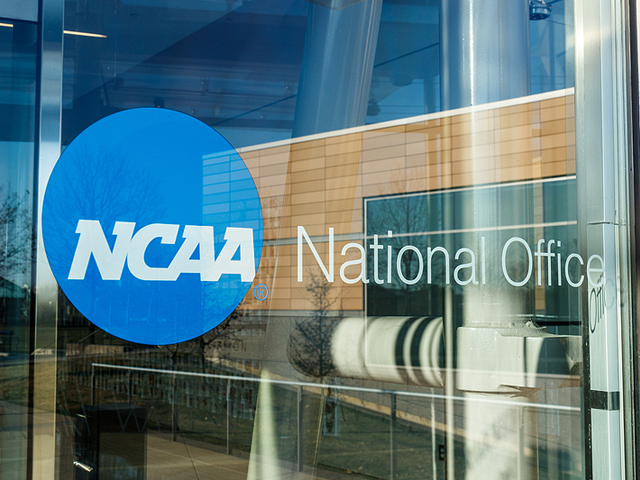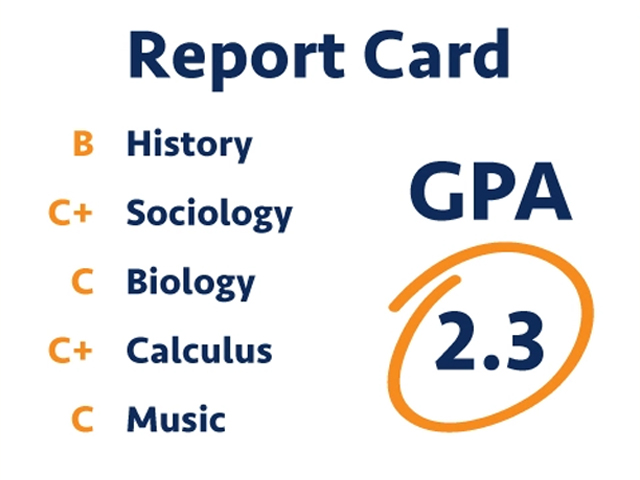
Any athletic students heading to college that wish to play at a Division I or II school with NCAA sports have to register for a Certification Account via the NCAA Eligibility Center. There are resources listed below about the registration process for the Eligibility Center and for home school students.
Review the following steps to ensure they are completed for the NCAA Eligibility Center. This is the only way you can become certified as an eligible player for NCAA sports:
- Visit eligibilitycenter.org to register with the NCAA Eligibility Center.
- Complete your registration fee payment.
- You need to submit a signed statement of who was in charge of managing your home school program. This includes who evaluated and taught the courses, who issued credit and who awarded grades. Additionally, you will require a signed statement showing that your home-schooling programs were done according to your state laws.
- Sign up to take the SAT or ACT. Submit your scores directly to the NCAA. Student Score Reports or test scores on transcripts are not utilized by the NCAA Eligibility Center.
- Provide high school graduation proof and your specific date of graduation.
- Supply core-course worksheets for math, English, foreign language, physical science, natural science, social sciences, philosophy courses and comparative religion classes.
- For each academic or high school program you completed, submit an official transcript.
Important Note: Student documentation may only be provided by home school administrators. Any documentation submitted by students will not be allowed.
Home School Program Defined
Did you know that homeschooling is not exactly the same as learning at home? There has been tremendous growth in virtual and online education in recent years. Students may be able to work with online teachers and an online school. This is not considered to be the same as home school that is directed by parents.
In order to figure out if your school is a non-traditional school that includes classes, assessments and grades with an online teacher or if it is considered home school, ask the following questions:
Who is instructing the classes?
If a tutor or parent teaches the courses inside the home, it is a home school. If an outside teacher is offering instruction, it is probably a non-traditional school.
How was the course curriculum developed or created? Who is responsible?
It is most likely a home school if a tutor or parent developed the curriculum. It would be considered a non-traditional program if an outside program or school developed the curriculum.
Who is responsible for grading the assessments and evaluating the assignments?
If a tutor or parent is responsible for grading your assignments and assessments, this is a home school.
Alternatively, if an outside program or school is in charge of delivering the assignments and the assessments, this is a non-traditional course.
Who created and designed the assessment structure and the assigned work?
You are most likely attending home school if your assessments and assignments are delivered by a tutor or a parent.
If your schoolwork is conducted and graded by an outside program or school, it is most likely a non-traditional course.
Who produces the grade report or student’s transcript?
If the report card and transcript are delivered by a tutor, parent, or home school program, this is considered to be a home school.
If the final grade report and class transcript are delivered by an external program or school, it is most likely a non-traditional course.
Who is responsible for delivering the final grade of the classes?
If a tutor or parent is in charge of the student’s final grade, this is most likely a home school.
If an external program or school delivers the student’s final grade, it is most likely a non-traditional course.
If the above answers suggest that education was obtained via non-traditional courses, the NCAA non-traditional course legislation will evaluate those classes.
Home School Classes
The classes that are considered to be home-schooling are those that a tutor or parent delivers and plans the instructional activities including tutorials, assistance, feedback, discussions and lectures.
Homeschooling is when the parent or tutor is responsible for determining how well the student comprehended the material. They complete the evaluations and grading regarding student achievement and performance on assessments and assignments while delivering feedback and possibly additional teaching.
Tutors or parents deliver the final grade that the student received in a home school course. They deliver the report cards or grades to a transcription agency or record them on a transcript.
Core Courses at Home School
Core classes prepare you for 4-year college classes in a variety of subjects such as math, English, physical science, natural science, Algebra 1 or higher, foreign language, philosophy, non-doctrinal religion and social science.
Core courses are required to show credit units or annual or semester grades on one’s home school transcript. Course credits are established in these increments: .25, .50, .75, 1.0, or .34 and .67. Note that no class may exceed 1.00 credit units.
Combining College Classes While Being a Home School Student
If you are a home school student who takes a college class, you need to earn both a credit and a grade in the class for it to be used as one of your core courses. CLEP or audited classes are not considered to be NCAA core classes.
The home school transcript must designate the class as a dual enrollment class if you are using the college class to meet your requirement for a core course. This must include the city and state, school name and location where the class was finished and the credit and awarded grade for the finished course.
Transcripts from a 2 or 4-year university or college where the class(es) were completed, can be submitted by the home school administrator, the college or university that provided the course, or an approved umbrella program if applicable. It can also be submitted by the NCAA school that is recruiting the athlete.
High School Classes During 8th Grade As NCAA Core-Classes
Eighth-grade high school classes can be considered for NCAA core courses if they meet the core course requirements. They must be shown with a credit and a grade on the home school transcript to be eligible.
Division I NCAA schools need college-bound athletes to finish their core classes in eight semesters once they start 9th grade. If the student-athlete was reassigned to a grade in high school after they finished that grade in home school and doesn’t graduate in eight semesters, classes finished after eight semesters will not be used for certifying the athlete’s eligibility to play at a Division I institution.
Graduation from Home School
The following are acceptable graduation proofs:
- Equivalency exam diplomas and test results that are recognized by the state.
- Home school transcript with day, month and year of graduation.
- Diploma with day, month and year of graduation.
Any diploma submitted by a home school in Hawaii or New York will not be accepted as proof by the NCAA Eligibility Center. This is because those two states do not recognize any diplomas from home schools.
If a Hawaii or New York student has been homeschooled there and doesn’t graduate from high school, the state board of education or local district needs to review the student’s home school record. Next, they must supply a written letter to indicate that the student completed their graduation requirements. The letter needs to include the day, month and year that the student met their requirements. Additionally, the student can provide the diploma and certificate earned once they pass a state-recognized equivalency test that will meet the graduation requirements of the NCAA.
Note that the NCAA Eligibility Center will not use an equivalent test for graduation proof it was taken before the student would have typically graduated with their class.
Transcripts for Home School
The home school transcript needs to include the day, month and year of the grade nine start date, the class titles and their awarded grades, credit units for every course and a grading scale with letter grades if a numeric scale is relied on. It must include the academic year the class was taken and the month, day and year of graduation. The student’s complete name and home address are required along with a handwritten signature of the home school administer. This refers to the parent or tutor who taught, organized, and evaluated the home school courses.
High school grades from one location or program that is transcribed on a different high school transcript are not acceptable. If a home school student attended a private or public high school, they need to provide a home school transcript showing supportive documentation and a transcript provided by the private or public high school to be eligible.
Home school classes delivered through a non-traditional program that is established including correspondence, online, or tutoring programs that issued a transcript after evaluating your classwork, must submit the program’s contact information and your transcript to the NCAA Eligibility Center. To be considered, the non-traditional school program must be approved for classwork to be considered.











